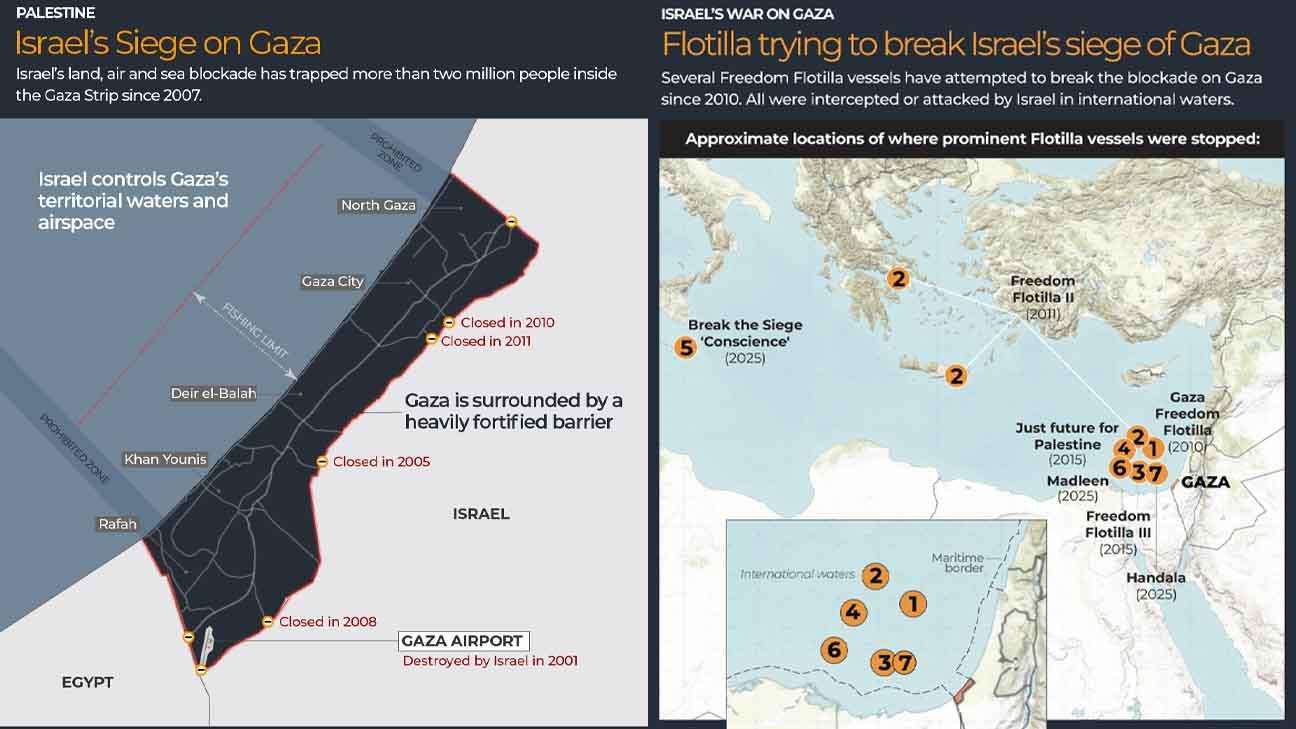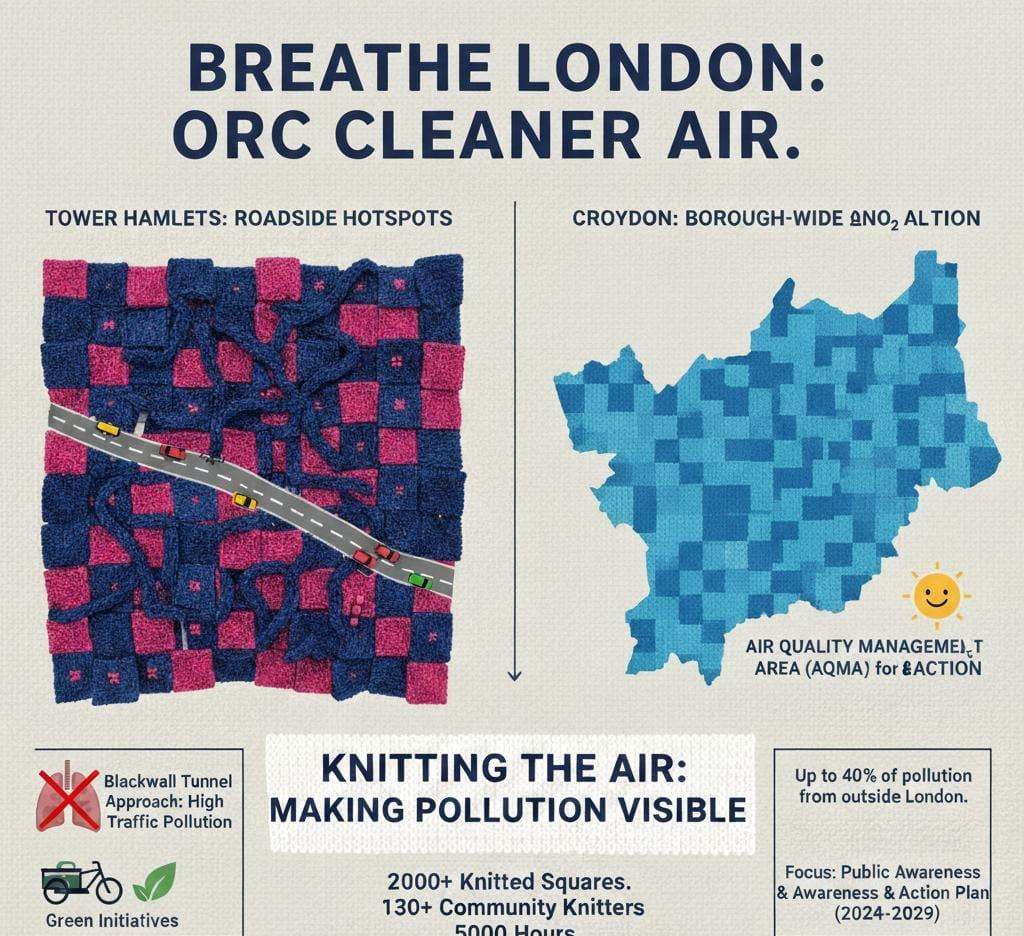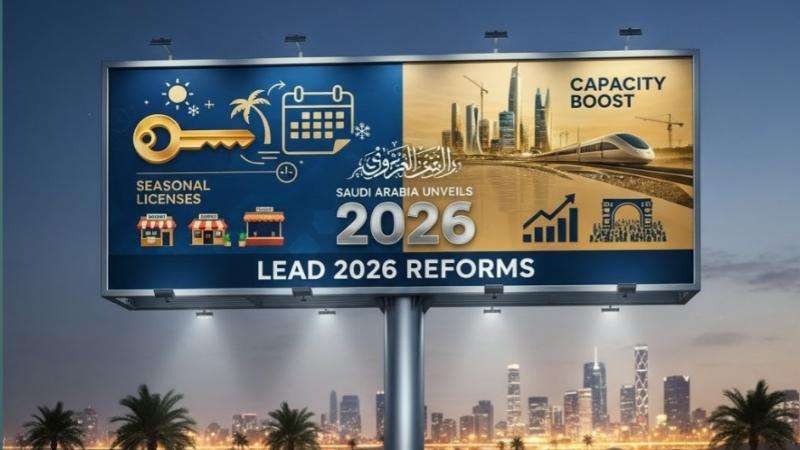Since the tightening of Israel’s blockade on Gaza in 2007, the sea has become both a symbol of hope and confrontation. Humanitarian flotillas—small fleets of boats carrying activists, aid workers, food, and medical supplies—have sought to challenge Israel’s maritime restrictions and draw global attention to the humanitarian crisis in the besieged enclave.
What is a flotilla, and why send aid by sea?
A flotilla is a coordinated group of boats or ships, often organised by grassroots movements and humanitarian organisations, to deliver essential supplies to areas in crisis. These convoys become necessary when conventional supply routes—land crossings and air corridors—are either blocked or heavily restricted.
For Gaza, the sea remains one of the only pathways activists can attempt to use to bypass Israel’s extensive control. Since the destruction of Gaza’s international airport in 2001 and the imposition of the naval blockade in 2007, land and air access have been almost completely shut off. Israel argues the restrictions are necessary for security, but critics, including human rights organisations and UN bodies, say the blockade constitutes collective punishment, severely limiting the entry of food, medicine, building materials, and other essentials.
By sailing aid directly to Gaza’s shores, flotillas seek not only to deliver urgent supplies but also to make a political statement: that the siege is illegal under international law and must end. The Sumud Flotilla, for instance, explicitly frames its mission as a challenge to Israel’s blockade and a message of solidarity with Palestinians under siege.
The history of Gaza flotillas
The flotilla movement emerged in the mid-2000s, spearheaded by the Free Gaza Movement, a coalition of international activists and NGOs. In August 2008, two of its boats—the Free Gaza and the Liberty—made history by sailing directly into Gaza’s port, marking the first time the blockade had been breached by sea. Jubilant crowds welcomed the activists, who brought hearing aids, medicines, and solidarity messages.
Encouraged by the breakthrough, the movement launched more missions. Between 2008 and 2016, it organised 31 boats, of which five successfully reached Gaza. Most, however, were intercepted by the Israeli navy, often in international waters, and forced to dock in Israeli ports where passengers were detained and aid cargo confiscated.
The most infamous attempt came in May 2010, when the Mavi Marmara, part of a six-ship Freedom Flotilla, was raided by Israeli commandos in international waters. The raid left nine Turkish activists dead and dozens injured, sparking international outrage and severely straining Israel’s diplomatic ties with Turkey. The incident drew unprecedented global attention to the blockade, but it also marked a turning point: from then on, Israel vowed to prevent any flotilla from reaching Gaza.
Since 2010, every subsequent flotilla has been intercepted before reaching the enclave. Ships have been seized, activists arrested, and in some cases violence has ensued. Yet despite these setbacks, new flotillas continue to be planned, often under the banner of the Freedom Flotilla Coalition, a network of solidarity groups from dozens of countries.
Legal and political battles at sea
Humanitarian flotillas typically claim protection under international maritime law, arguing that delivering food and medicine to civilians cannot be construed as a hostile act. Israel, however, maintains that its naval blockade is lawful under the principle of self-defence, accusing flotillas of attempting to smuggle weapons to Hamas and other armed groups in Gaza.
The UN has issued conflicting opinions. A 2011 UN panel (the Palmer Report) deemed the blockade legal but criticised Israel’s use of “excessive force” during the Mavi Marmara raid. Other UN bodies, including the Human Rights Council, have repeatedly described the blockade as a violation of international law, citing its devastating impact on Gaza’s civilian population.
The enduring symbolism of the flotillas
Although most flotillas have been stopped at sea, their significance lies less in the supplies they carry and more in the message they deliver. Each attempt draws renewed attention to Gaza’s isolation and sustains international debate over the legality and morality of Israel’s blockade.
For Palestinians in Gaza, flotillas symbolise solidarity from the outside world—a sign that their plight has not been forgotten. For activists, they are a form of nonviolent resistance, echoing earlier waves of international solidarity movements, from anti-apartheid convoys in South Africa to humanitarian missions in conflict zones worldwide.
As the Sumud Flotilla prepares its journey, it sails not only with aid but with history on its side—a history of defiance, confrontation, and international attention that continues to challenge the status quo in one of the world’s most enduring conflicts.
_3.jpg)
_4.jpg)






.svg)


